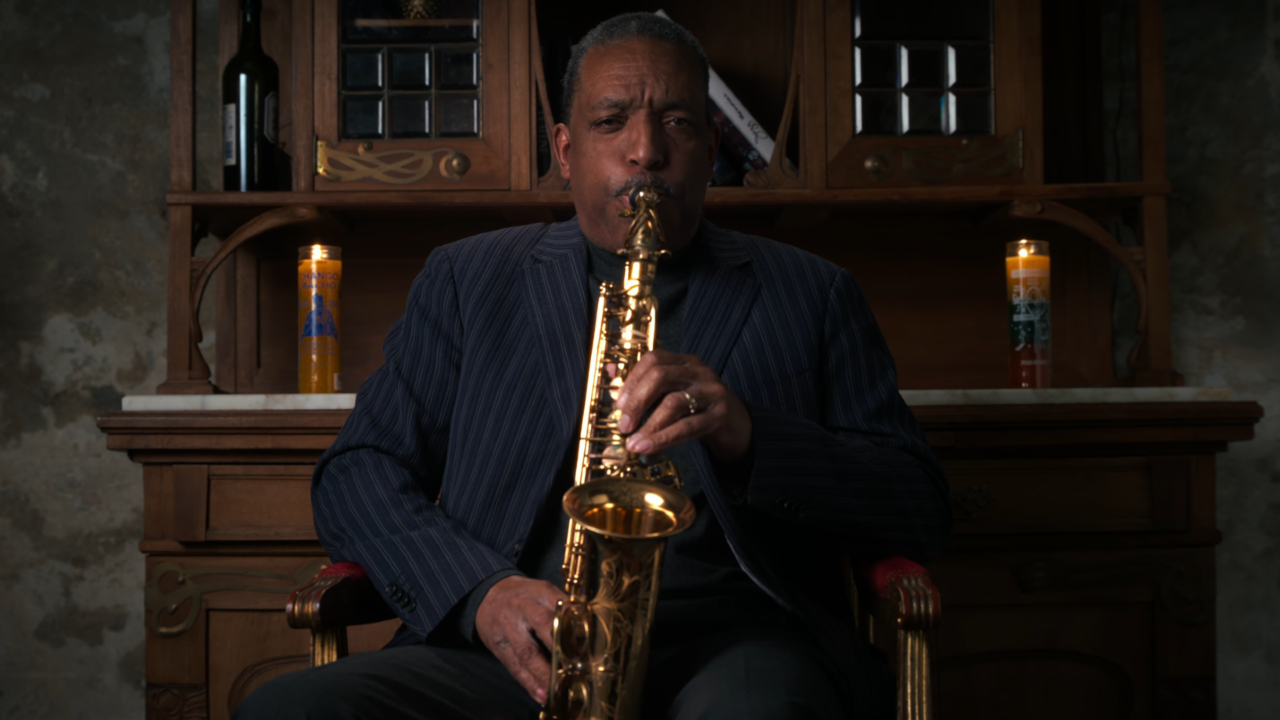Critics Have Seen Katrina: Come Hell Or High Water, And Seem To Be Saying The Same Thing About Netflix's Spike Lee Doc
Katrina: Come Hell and High Water features another great Spike Lee joint

Your Daily Blend of Entertainment News
You are now subscribed
Your newsletter sign-up was successful
Spike Lee is no stranger to documentaries about Hurricane Katrina and the devastation it brought to New Orleans, as he previously made two of the best: When the Levees Broke: A Requiem in Four Parts and If God Is Willing and Da Creek Don’t Rise. The acclaimed director and documentarian has seemingly completed his trilogy with his part in making Katrina: Come Hell and High Water, a three-part 2025 Netflix original docuseries about the storm, the flood, and its aftermath. Critics have watched the series, which is now streaming with a Netflix subscription, and seem to be saying the same thing about the new TV series.
The first two episodes directed by Geeta Gandbhir (“We Gonna Ride it Out Like We Always Do”) and Samantha Knowles (“Shelter of Last Resort”), respectively, help create a “stirring tribute,” as the Guardian’s Jack Seale writes, but it’s Lee’s “God Takes Care of Fools and Babies,” which features interviews with the likes of NOLA native Wendell Pierce, where the doc becomes a “rich oral history”:
You could arguably watch [National Geographic’s] Race Against Time instead of the first two episodes of Come Hell and High Water. But make sure to come back for the closing documentary feature directed by Spike Lee. A rich oral history of the city in the two decades since the hurricane, this film rattles off the myriad injustices that continued to devastate New Orleans after the waters receded, as reported by creative figures such as the actor Wendell Pierce and the musician Branford Marsalis, among Katrina survivors.
Esther Zuckerman of the New York Times made similar comments about three-part Come Hell and High Water, pointing out that while the first two episodes do a great job of telling the story, it’s the Spike Lee portion that “set this series apart”:
Each of its three episodes is directed by a different filmmaker. Each is emotional and precisely rendered. But the third is what really sets this series apart, directed by Spike Lee, who was responsible for the groundbreaking 2006 docuseries When the Levees Broke: A Requiem in Four Acts. With new insights and material drawn from the nearly two decades since, Lee returns to New Orleans with sorrow, rage and irreverence to paint a portrait of how deeply the community has been failed.
Comparing it to the vast number of other Hurricane Katrina documentaries that have come out ahead of the storm’s 20th anniversary, Ben Travers of IndieWire writes that the first two chapters “play like loosely connected context” ahead of Spike Lee’s 90-minute finale:
Come Hell and High Water, as a whole, is an odd amalgamation of this year’s other offerings, in part because it isn’t a full-on Spike Lee Joint. The first two episodes, directed by Geeta Ghandbir and Samantha Knowles, respectively, play like loosely connected context ahead of Spike’s main presentation. They lay out the 2005 hurricane’s impact on New Orleans in broad beats, using new interviews and old footage to construct an effective overview for those who don’t remember and an affecting reminder for those who do.
Then there is the Boston Globe’s Chris Vognar, who described “God Takes Care of Fools and Babies” as a “Spike Lee Joint” that charts its own path that is something completely unique with the filmmaker’s unflinching commentary and visual style:
The first two episodes of Hell and High Water are of a piece, methodically detailing what happened and how most of the post-storm tragedy could have easily been prevented. But Episode 3 is a Spike Lee Joint, which means it charts its own path through the Katrina wreckage. He isn’t seen, but he’s frequently heard, shouting out follow-up questions and offering sympathies. He fills the screen with fragments of text from his interview subjects: ‘Too little too late.’ ‘Systemic racism.’ ‘White folks.’ He embraces tangents, about Black self-love and COVID and other subjects.
It’s safe to say that critics really enjoy the third and final act of Katrina: Come Hell and High Water, which is evident by the acclaimed documentary’s perfect score on Rotten Tomatoes. If you want to learn about the tragedy Hurricane Katrina and how New Orleans changed in the aftermath, Spike Lee's painfully relevant doc will do the trick.
Your Daily Blend of Entertainment News

Philip grew up in Louisiana (not New Orleans) before moving to St. Louis after graduating from Louisiana State University-Shreveport. When he's not writing about movies or television, Philip can be found being chased by his three kids, telling his dogs to stop barking at the mailman, or chatting about professional wrestling to his wife. Writing gigs with school newspapers, multiple daily newspapers, and other varied job experiences led him to this point where he actually gets to write about movies, shows, wrestling, and documentaries (which is a huge win in his eyes). If the stars properly align, he will talk about For Love Of The Game being the best baseball movie of all time.
You must confirm your public display name before commenting
Please logout and then login again, you will then be prompted to enter your display name.
